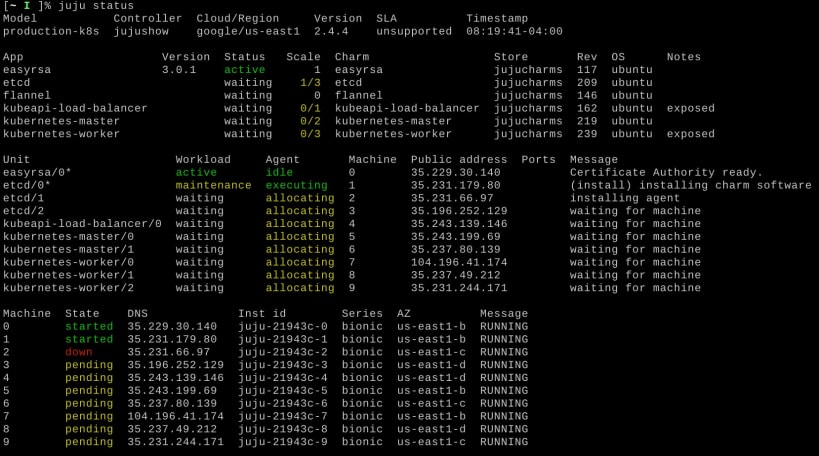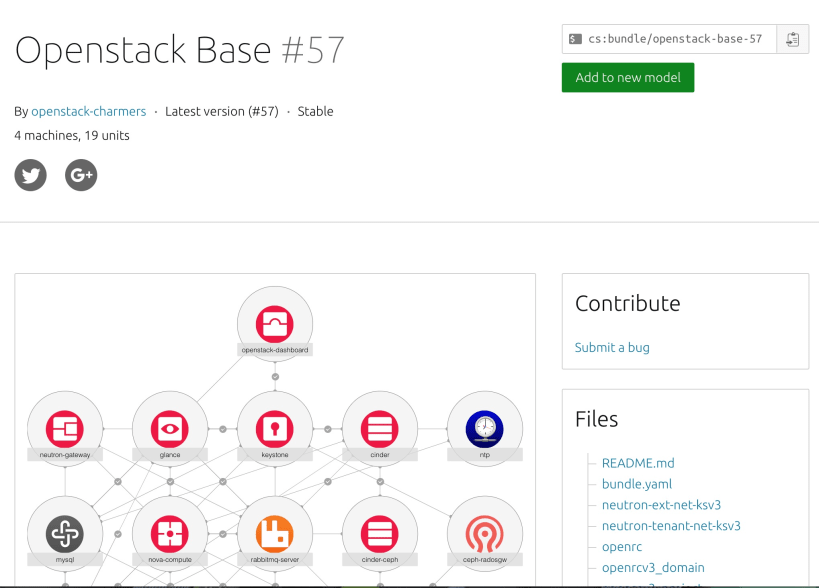





A model-driven universal operator lifecycle manager for multi cloud and hybrid cloud application management on K8s and machines.
What is an operator lifecycle manager? Kubernetes operators are containers with operations code, that drive your applications on K8s. Juju is an operator lifecycle manager that manages the installation, integration and configuration of operators on the cluster. Juju also extends the idea of operators to traditional application management on Linux and Windows servers, or cloud instances.
Model-driven operations and integration Organise your operators into models, which group together applications that can be tightly integrated on the same substrate and operated by the same team. Capture resource allocation, storage, networking and integration information in the model to simplify ongoing operations.
Better day-2 operations Each operator code package, called a charm, declares methods for actions like back, restore, or security audit. Calling these methods provides remote administration of the application with no low-level access required.
Learn more
You are about to open
Do you wish to proceed?
Thank you for your report. Information you provided will help us investigate further.
There was an error while sending your report. Please try again later.
Snaps are applications packaged with all their dependencies to run on all popular Linux distributions from a single build. They update automatically and roll back gracefully.
Snaps are discoverable and installable from the Snap Store, an app store with an audience of millions.

Snap can be installed from the command line on openSUSE Leap 15.x and Tumbleweed.
You need first add the snappy repository from the terminal. Choose the appropriate command depending on your installed openSUSE flavor.
Tumbleweed:
sudo zypper addrepo --refresh https://download.opensuse.org/repositories/system:/snappy/openSUSE_Tumbleweed snappy
Leap 15.x:
sudo zypper addrepo --refresh https://download.opensuse.org/repositories/system:/snappy/openSUSE_Leap_15.6 snappy
If needed, Swap out openSUSE_Leap_15. for, openSUSE_Leap_16.0 if you’re using a different version of openSUSE.
With the repository added, import its GPG key:
sudo zypper --gpg-auto-import-keys refresh
Finally, upgrade the package cache to include the new snappy repository:
sudo zypper dup --from snappy
Snap can now be installed with the following:
sudo zypper install snapd
You then need to either reboot, logout/login or source /etc/profile to have /snap/bin added to PATH.
Additionally, enable and start both the snapd and the snapd.apparmor services with the following commands:
sudo systemctl enable --now snapd
sudo systemctl enable --now snapd.apparmor
To install juju, simply use the following command:
sudo snap install juju
Browse and find snaps from the convenience of your desktop using the snap store snap.

Interested to find out more about snaps? Want to publish your own application? Visit snapcraft.io now.